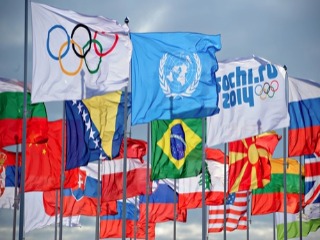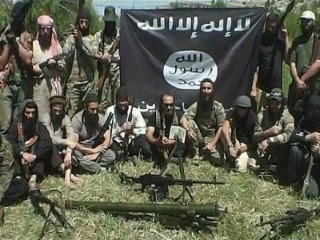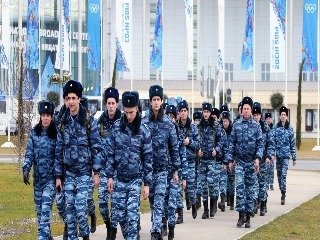The Sochi Olympic Games and the Rise of Cossacks in the North Caucasus
By Tomáš Baranec (the 19/02/2014 of the CACI Analyst)
On December 5, 2013, Patriarch Kirill publicly supported the plans of Stavropol governor Valery Zerenkov to resettle the Semirechensk Cossacks from Kyrgyzstan to the North Caucasus. This was the most recent in a series of signs showing the steady rise of official support for the Cossacks in the region. Initially this development was frequently attributed to the need for increasing the security of the upcoming Olympic Games in Sochi, highlighted by the recent terrorist attacks in Pyatigorsk and Volgograd. However, the amount of support the Cossacks have started to receive suggests that they may play a much more important role in the Kremlin's strategy.

Putin Makes the Circassian Issue Part of Russia's Relations with the West
By Valeriy Dzutsev (the 19/02/2014 of the CACI Analyst)
As the international community started to pay greater attention to the North Caucasus because of the Sochi Olympics, ethnic minorities’ complaints in the region significantly increased. In particular, the Circassians became highly vocal about their grievances. Given the authoritarian and increasingly nationalist regime in the Kremlin, the Russian government perceives the rise of activism among Circassians as a security threat. The Olympics served for Moscow as a certain type of litmus test that pointed to the areas of Russia’s vulnerability in the North Caucasus. Now, the aggrieved minorities and the central government appear to be entering a path of confrontation in already volatile region.

Azerbaijanis Volunteer in Syria Conflict
By Emil Souleimanov (the 05/02/2014 issue of the CACI Analyst)
Recently, frequent media reports of Azerbaijani citizens involved in the Syrian civil war have sparked a renewed interest in the possible impact of Arab revolutions on this post-Soviet country. Even though Azerbaijani authorities have sought to remain silent on the matter, news from both the South Caucasus and the Middle East suggest that Azerbaijani volunteers have increasingly been participating in the civil war hundreds of miles away from their homeland. Upon their return in Azerbaijan, they might pose a serious threat to the internal stability of the nation of nine million, located at the crossroads of Turkey, Iran, and Russia.

“CACI Analyst, January 22, 2014”
Moscow Takes Counterproductive Security Measures Ahead of Sochi
By Valeriy Dzutsev (the 22/01/2014 issue of the CACI Analyst)
As the attacks of the North Caucasian insurgency appear to move closer to the region of the Winter Olympics in Sochi, the government further increases the security precautions. Apart from the failings of the Russian security services, the attacks highlight the growing support for the insurgents among the general population in the North Caucasus. Nearly extreme measures taken by Moscow to shield the Olympics from the North Caucasian insurgents further contribute to the isolation of this region from the rest of Russia and the rise of ethnic tensions. The situation around the Olympics looks increasingly odd as the sport event appears to be destined to take place in an area surrounded by a war zone.



